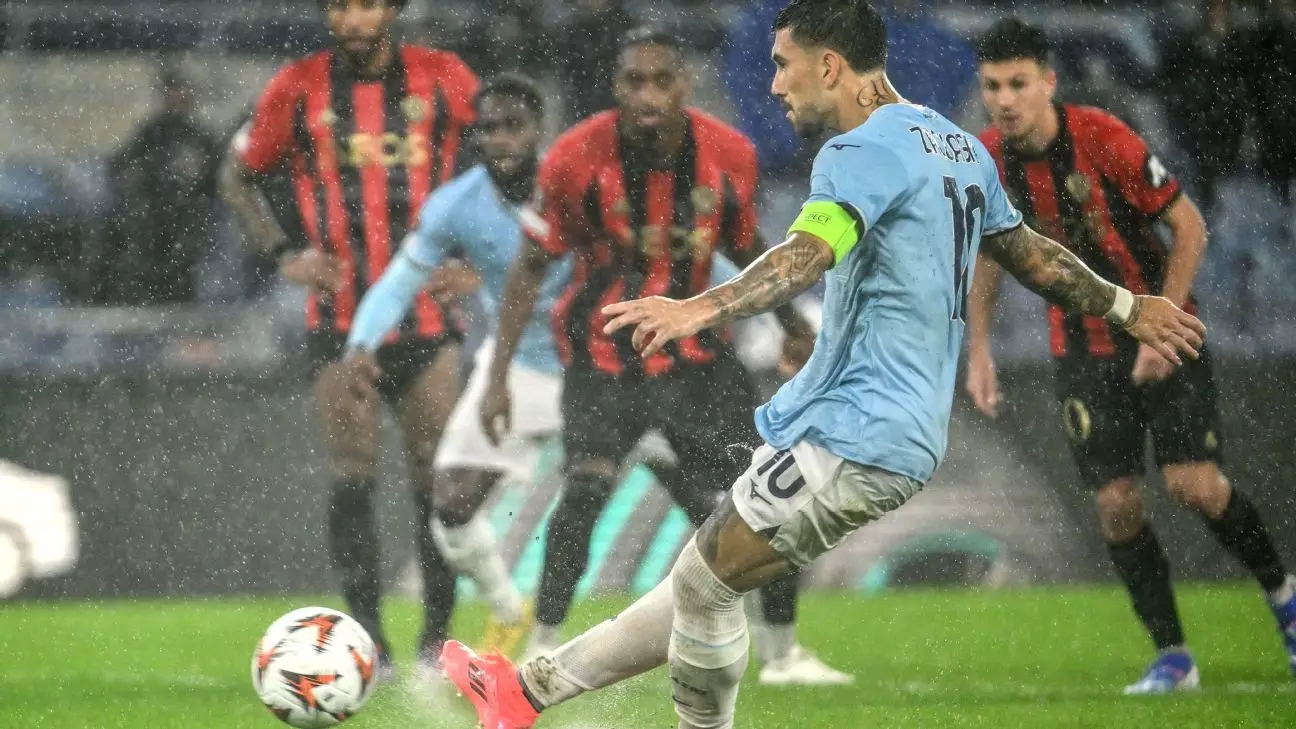Racism continues to plague football, an issue that transcends borders and club allegiances. The latest incidents, involving Lazio and Atlético Madrid, highlight the urgent need for action against such discriminatory behavior. UEFA’s recent sanctions—including stadium closures and fines—aim to address the toxic culture that emboldens some supporters to engage in racist conduct. The relatively small penalties, however, raise questions about the effectiveness of these measures and whether they will provoke real change.
During their recent UEFA Europa League encounter, Lazio faced severe repercussions after supporters exhibited racist behavior. This misconduct, which took place in their 4-1 victory against Nice, resulted in two sections of their stadium being ordered to stay closed for their upcoming home match against Porto. Additionally, the club was fined €45,000 (approximately $49,230) and faced the specter of further penalties should their fans misbehave again within a one-year probationary period. The measures taken against Atlético Madrid followed a similar path after their fans were found guilty of engaging in discriminatory behavior during their destruction against Benfica in the Champions League. They received a fine of €30,000 and a suspended ban on ticket sales for away matches, subject to good behavior.
These punitive actions indicate UEFA’s stance on maintaining sportsmanship and decency within football arenas. Nevertheless, a critical examination of these measures reveals that they often fall short. For example, the usage of temporary closures and fines might prompt compliance in the short term, but the transient nature of such consequences could ultimately fail to curtail the deep-rooted issues surrounding racism.
Despite UEFA’s attempts to curb this behavior, many believe the system requires a more robust approach. The penalties imposed on clubs are often seen as merely slaps on the wrist, which can lead to a lackadaisical attitude about the consequences of their supporters’ actions. Clubs are tasked with enforcing discipline among their fans, but true accountability needs to arise from deeper engagement with the culture surrounding their supporters. Specifically, ongoing educational programs aimed at raising awareness and fostering empathy must become a mainstay in the football community.
Moreover, the effectiveness of punitive measures is diminished unless they come with proactive prevention strategies. Education, campaigns promoting diversity, and strong actions against hate speech are indispensable tools for long-term change. In contrast to the financial penalties, these initiatives could create an environment where discrimination finds no foothold, nurturing a culture of respect and inclusiveness.
The plight against racism in football may feel overwhelming, but it is not insurmountable. By holding clubs accountable and insisting on stronger penalties for misconduct, UEFA and other governing bodies can send a clear message that racism has no place in the sport. Continuous dialogue, education, and advocacy are essential to foster the change that football so desperately needs. As fans, players, and clubs come together to confront these issues, we can aspire to a future where the beautiful game is defined by unity rather than discord.
